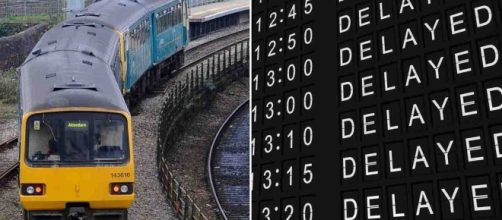In 2015, the Guardian Online reported that 25% of Virgin Trains arrive late - that seems a lifetime ago in terms of train travel.
At the time, Virgin was probably and, arguably still are, one of the better operators in terms of responding to the voice of the customer. In true pioneering fashion, Richard Branson and company held their hands up and more-or-less admitted that network problems were so deep-rooted that improvements to running times, was always going to be a big ask. For example, such was the disruption to the train timetables over the festive period that Transport for London took the bold decision to waive the £11:50 congestion charge for Central London, during that time. This drastic measure was taken in an attempt to steer rail commuters onto the road because of widespread delays and disruption on the trains.
So the journey towards automatic Delay Repay for late trains begins
Virgin Trains evidently felt that the best way to appease customers was to remove the red tape. They did this by paying customers Delay Repay compensation automatically, on pre-booked tickets, for journeys on trains delayed by more than thirty minutes.
Slow moving progress on the train Delay Repayment front
This initiative, at the time, appeared to be the blueprint for redressing the balance to customers without subjecting them to further distress and inconvenience. It was anticipated that the automatic Delay Repay compensation scheme, would spread across other networks and grow in the remit. The Transport Secretary, at the time, Patrick Mcloughlin made his thoughts on the scheme clear:
"We are encouraging other operators to roll out similar schemes."
The encouragement was not convincing, by and large, other operators preferred to leave the onus on the customer to manually claim recompense for the delay.
Obviously, this approach has a "fairness for all" aspect to it. Under the Virgin Trains scheme, it was only those with pre-booked/advance tickets who received auto repayment. Commuters, who voiced their concerns in letters pages of the local and popular press, seemed to want the scheme to go further.
Recently, in July 2017 according to Money Saving Expert News website - Great Northern look to be overtaking competitors in the awareness of customer needs stakes, by not only adopting the auto-repay scheme. They have also reduced the time period for the classification of a delay from 30 to 15 minutes plus.
Will Delay Repay compensation now take a shunt forward?
There have been various figures floating around, but Moneysavingexpert.com quote the proportion at 2/3rds - referring to people eligible for Delay Repay but, for whatever reason, do not claim it.
Whilst most operators have a target for responding to Delay Repay applications. These are aspirational and there is not a great deal of transparent reporting on these. The feedback on the platforms and trains is that it is too much hassle. Although, the online forms to claim Delay Repay are now simpler than they were. Many operators (including East Midlands Trains and Trans-Pennine Express) allow for forms to be auto-completed, to some extent, with the use of internet cookies.
The argument is strong to say that there should be no reason to claim and an automated system is a must. Especially with the increasing number of ticket barriers at train stations, these could/should be able to log a time of travel and support a system whereby all customers receive automated compensation. Surely, it's the least that train companies can do, isn't it?


